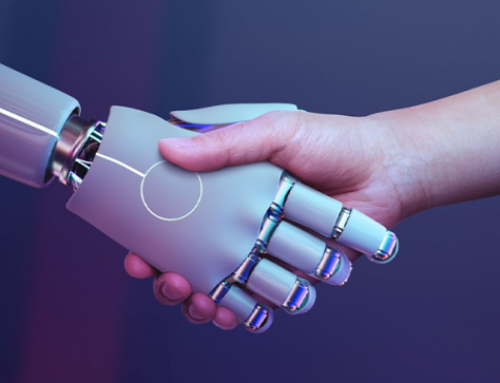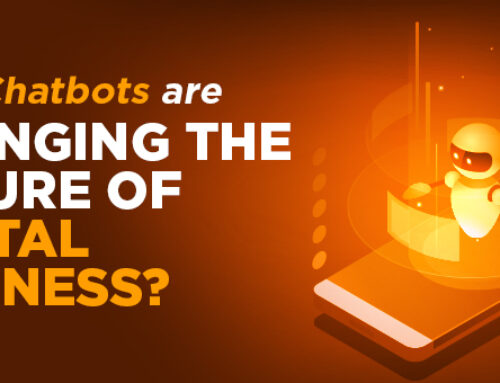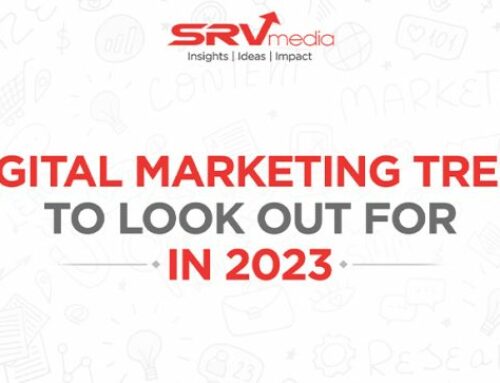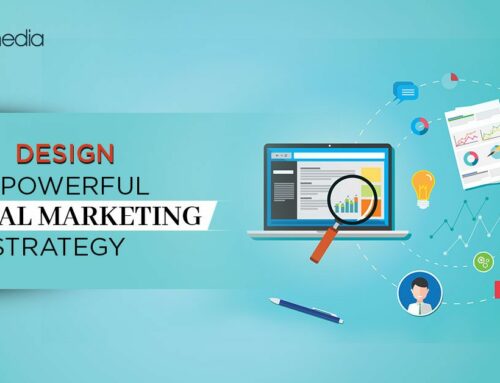Get Ready to Change Your Digital Marketing Game with AI

The growing popularity and usability of ChatGPT and other Artificial Intelligence (AI) tools have left users spellbound. The results are now more accurate than ever and have come very close to mimicking human behaviour.
Of course, we had already seen this coming, and machines were already adept at helping humans perform their tasks better. A great example is tools that leveraged the power of machine learning algorithms to provide the best-match output when asked to make a video of pictures. Increased college enrolments for the course AI and Machine Learning in digital marketing also speaks for a future trend, which is too prominent to overlook.
The very reason behind this increasing demand is the results! These often amazed users at how well machines are now getting when asked to do tasks requiring frequent human intervention.
But with AI, the game has changed altogether. AI and ML in digital marketing is coming as a revolutionary strom and we must response to the call of changing time.

AI has helped automate routine and repetitive tasks, but it is now steadily expanding its horizons toward becoming an essential tool for driving growth and increasing efficiency. But while its role in technical and business processes is often well known, the how to use AI in digital marketing is still known to few. It will take time for the mass to normalise the same for day to day business. However, the curiosity is increasing among the businesses and so its usage.
From sending personalized recommendations and messages based on user behaviour and search history to being the ideal solution for chatbots and handling initial user queries, AI is revolutionizing communication.
AI was being used in marketing even before the advent of ChatGPT, and the advanced tools available today are only accelerating the pace of AI adoption in digital marketing.
In this blog, we’ll dig deeper into the role of AI in digital marketing and understand the opportunities and challenges of leveraging this powerful technology. We aim to provide valuable insights for digital marketing professionals, business owners, and anyone interested in the dynamic intersection of AI and digital marketing.
How Is AI Making an Impact On Digital Marketing?
Before we dig deeper into the value of AI, let us first understand how it is revolutionizing the marketing domain.
According to the AI Marketing Benchmark Report 2023 published by Influencer Marketing Hub, there are several notable findings that we need to know of.
As per this report,
- 71.2% of marketers are of the opinion that AI can outperform humans at their jobs
- 61.4% of marketers are already using AI in some of their marketing activities
- 54.5% of marketers have a favourable view that AI will significantly enhance marketing processes
- 44.4% of marketers have used AI in some form for their content production
With such positive views on the use of AI in marketing, the obvious question that comes to mind is, why isn’t AI completely replacing humans yet?
As provided in the same report, the answer concerns our current understanding of what AI can achieve.
41.9% of the respondents to this survey mentioned the lack of understanding as the biggest reason for not using AI, and 23.7% quoted the high cost of implementation as the reason.

Looking at the vast amounts of opportunities and the number of marketers already leveraging AI, the future seems to suggest that AI will only increase as it gets better and more personalized. In 2021, the market for AI in the marketing sphere was $15.84 billion, which is now valued to increase to $107.5 billion by 2028.
These are just a few basic examples of how AI is making an impact in marketing. This is only the beginning of what AI has in store for us, as it continuously evolves and provides better results with each iteration.
Businesses stand to gain a competitive advantage, improve lead generation, improve customer engagement, and drive growth and revenue by leveraging the power of AI.
However, as with any new technology, some challenges come with implementing AI in marketing.
In the next section, we’ll explore these challenges in more detail.
Challenges for AI in Digital Marketing
While many opportunities are presented by using AI in digital marketing, businesses must also navigate the significant challenges that it brings. Some of the key challenges when leveraging AI in marketing include the following.
Insufficient IT Infrastructure and High Processing Power
With great power comes greater processing and significantly high IT spending!
AI requires high processing power, given the advanced technology at play. This may require businesses to upgrade their existing infrastructure to ensure they are ready for the advanced features that AI can provide. This is often a significant challenge for smaller businesses with limited resources.
For analyzing data, the need for powerful infrastructure increases with the AI model because the marketing teams often work with large customer data to build campaigns and provide targeted experiences, which may not be feasible given the existing hardware and software.
Lack of Talent and Skilled Resources
Implementing AI in marketing requires specialized skills and resources, which not all businesses may have. Businesses need individuals skilled in data science, machine learning, and artificial intelligence, along with someone who can make business sense from numbers. This is a combination of marketing skillsets along with technical expertise, which is extremely rare in today’s world.
Not only are such resources hard to find, but they are also in high demand. The cost of hiring these experts can be prohibitive for many smaller and medium-sized businesses.
As a result, many companies are now turning to external vendors and consulting firms specializing in AI to help them implement these technologies.
Ethical and Privacy Concerns
As AI becomes more prevalent in marketing, ethical considerations become more important. As per PwC’s Global AI Study, privacy and protection of sensitive data were one of the biggest concerns for organizations when implementing any AI technology for their business.
Businesses must ensure that they are using AI transparently and fairly and respects customer privacy. This is particularly important when using customer data to train AI models.
There is also a risk of perpetuating biases or discriminating against certain groups if the data used to train AI models is biased.
For example, if the data used to train an AI model is biased against women or people of colour, the model may produce biased results. This might lead to unintended consequences, such as reinforcing stereotypes or discriminating against certain groups.
Businesses must also ensure that they are complying with data privacy regulations like GDPR and CCPA. This requires businesses to be transparent about how they use customer data and to obtain explicit consent from customers before gathering and using their data.
Huge Initial Investment and ROI Measurement
Implementing AI in marketing can require a significant initial investment in hardware, software, and expertise. This can be a barrier for many businesses, particularly smaller ones with limited resources.
In addition, measuring the ROI of AI in marketing can prove challenging. While AI can help businesses optimize their campaigns and improve customer engagement, it can be difficult to quantify the impact on revenue and growth.

To overcome these challenges, businesses must carefully evaluate the costs and benefits of implementing AI in their marketing strategies. They should also work with experts to ensure that they are using AI in a way that respects customer privacy.
By taking these steps, businesses can ensure that they are leveraging the power of AI responsibly and effectively.
Opportunities For AI In Digital Marketing
Artificial Intelligence (AI) can be applied in various areas of digital marketing, presenting numerous opportunities for businesses to improve their marketing strategies and campaigns.
If you are wondering that what would be the future of AI in digital marketing, here are some specific areas where AI can be used.
Tracking Your Competition
AI-powered tools can monitor competitors’ marketing activities in real-time, allowing businesses to respond quickly to changes in the market. AI can help with data curation and suggest steps based on what your competitors are doing.
These tools can analyze competitors’ social media campaigns, search engine optimization, content marketing, and other marketing activities.
Hyper-Personalization
In today’s world, directly conversing with your customers is extremely important. While humans are the best way to generate a 1-1 relationship between your brand and your customers, recent developments in AI are helping make this a lot more efficient.
AI can create highly personalized campaigns that speak directly to each customer’s unique interests and needs based on available data points and specific events.
This can include personalized product recommendations, personalized content, and personalized offers that are triggered depending on the activity and interest of the customer.
Video Creation
This may come as a surprise for most, but AI is heavily used in video creation. AI-powered video editing tools can analyze video content, automatically select the best clips, add transitions, and create polished final products.
In addition, these tools can make a photo video or even recommend enhancements, templates, and copyright-free audio.
Text-to-speech and voiceover AI-powered tools can automatically generate high-quality voiceovers for videos, saving time and money while increasing production quality. Plus, with advanced text-to-video editors now being offered, these platforms completely revolutionalize the video creation game.
Content and Copywriting
AI can automate the content creation process by generating ideas, researching topics, and writing high-quality content. ChatGPT has already showcased just how well it can get this done, and there are tons of other tools like Jasper, Copy.ai, QuillBot, and other platforms which can help writers write, edit, proof-read, and do a plagiarism check on their content.
AI-powered content creation tools can also analyze user data and generate personalized content tailored to users’ interests and preferences. In addition, they can automatically generate ad copy, email subject lines, and website copy.
This helps save time and dramatically increases the efficiency of the content marketing process.
Use Of AI In Advertising
For advertising, AI can significantly improve the effectiveness of campaigns by analyzing user data and targeting the right audience with a relevant message at the right time.
AI-powered marketing tools can create personalized ad experiences that speak directly to each user’s unique interests and preferences, increasing the likelihood of engagement and conversions.
These tools can also recommend focus areas for creating advertising based on data collected from the brand’s existing ads, making it more user-centric and impactful.
Social Media Marketing
AI can optimize social media marketing by analyzing data to identify trends and patterns. These can help marketers with content planning for social media and determine the right approach for their brand marketing.
For example, using these data points, social media marketers can determine the proper placement for visual content for social media engagement and gain a higher viewership and engagement.
Email Marketing
AI can personalize email marketing campaigns based on each customer’s preferences, behaviour, and history. As a result, AI-powered tools can create highly targeted and personalized email campaigns that are more likely to be opened and engaged with.
According to Forbes, 41% of marketers have generated higher revenue from email marketing by using AI and have seen improvements in their click-through rates and open rates.
Website Development
AI can optimize the website for better user experience and conversion rates. AI-powered tools can analyze website data to identify areas for improvement, such as website speed, design, and content.
AI can also automate tasks such as customer services by implementing chatbots that leverage AI to provide accurate and relevant answers to their customers.
Podcasts
AI can analyze podcast data to understand listener behaviour and preferences. Many text-to-speech options provide almost human-like voice output, so businesses can convert their blogs or text-based content into podcasts.
This helps them leverage existing content to reach a whole different audience base.
Use of AI in Digital Marketing Strategy And Decision Making
In addition to these specific marketing processes, AI can provide specific recommendations based on available data sets. For marketing strategy, the marketing team often has to analyze large amounts of data and go granular to create a strategy that aligns with the organization’s marketing goal.
AI-powered analytics tools can easily analyze large amounts of data and identify trends and patterns humans may miss. This information can help businesses make informed decisions about marketing strategy.
In Summary: How Can You Best Implement AI for Your Digital Marketing Needs?
AI is already transforming the marketing game by improving marketing processes, personalizing messaging based on key data points, and optimizing campaigns like never before. With AI-powered tools, companies can achieve their goals faster and more efficiently than ever.
If you want to incorporate AI into your marketing strategy, taking a thoughtful and strategic approach is important.
- Start by identifying your business goals and challenges and determining which areas of your marketing process could benefit most from AI.
- Next, look into the AI-powered tools best suited to your business needs and goals. Choose the tools that are most appropriate for your marketing needs.
- Before you set out to implement these AI tools for your marketing, make sure you test them out. The key here is ensuring that AI truly adds value and helps you surpass your existing marketing outcomes.
- Lastly, invest in training and development to ensure your team knows how to use your AI tools effectively. This could involve hiring AI experts, providing training programs, or partnering with external agencies that specialize in AI-powered marketing solutions.
By following these steps and remaining vigilant about the ethical and privacy concerns surrounding AI adoption, businesses can implement AI-powered marketing solutions that deliver real value and impact.












